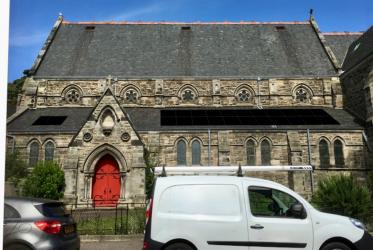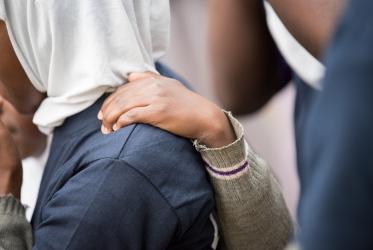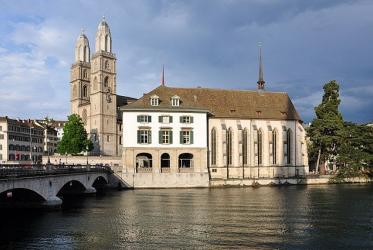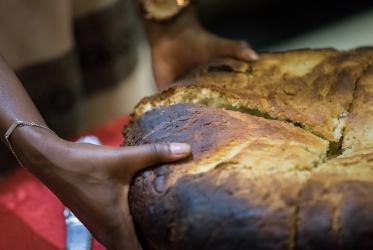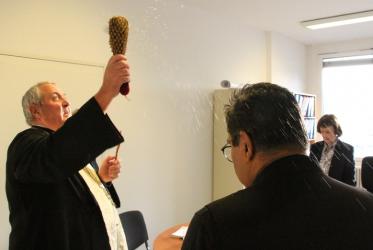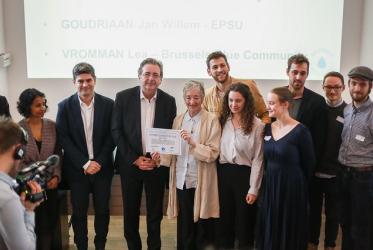Displaying 21 - 40 of 115
Scottish and UK religious leaders call for urgent climate action
20 September 2021
Rethinking Ecological Relationships in the Anthropocene era
11 - 13 February 2021
Faith communities vital in overcoming hunger
18 March 2020
Churches should use their voice on climate change
26 February 2020
Plans for 11th WCC Assembly build excitement across the globe
18 February 2020
Greenland’s grand Gospel preacher
07 February 2020
WCC staff shares “great blessing of waters”
13 January 2020
WCC joins gathering of Blue Communities in Brussels
06 December 2019
Patriarch Bartholomew, archbishop of Sweden sign joint editorial
30 September 2019
WCC President Wejryd: ‘Water, in many ways, represents God’
27 September 2019
